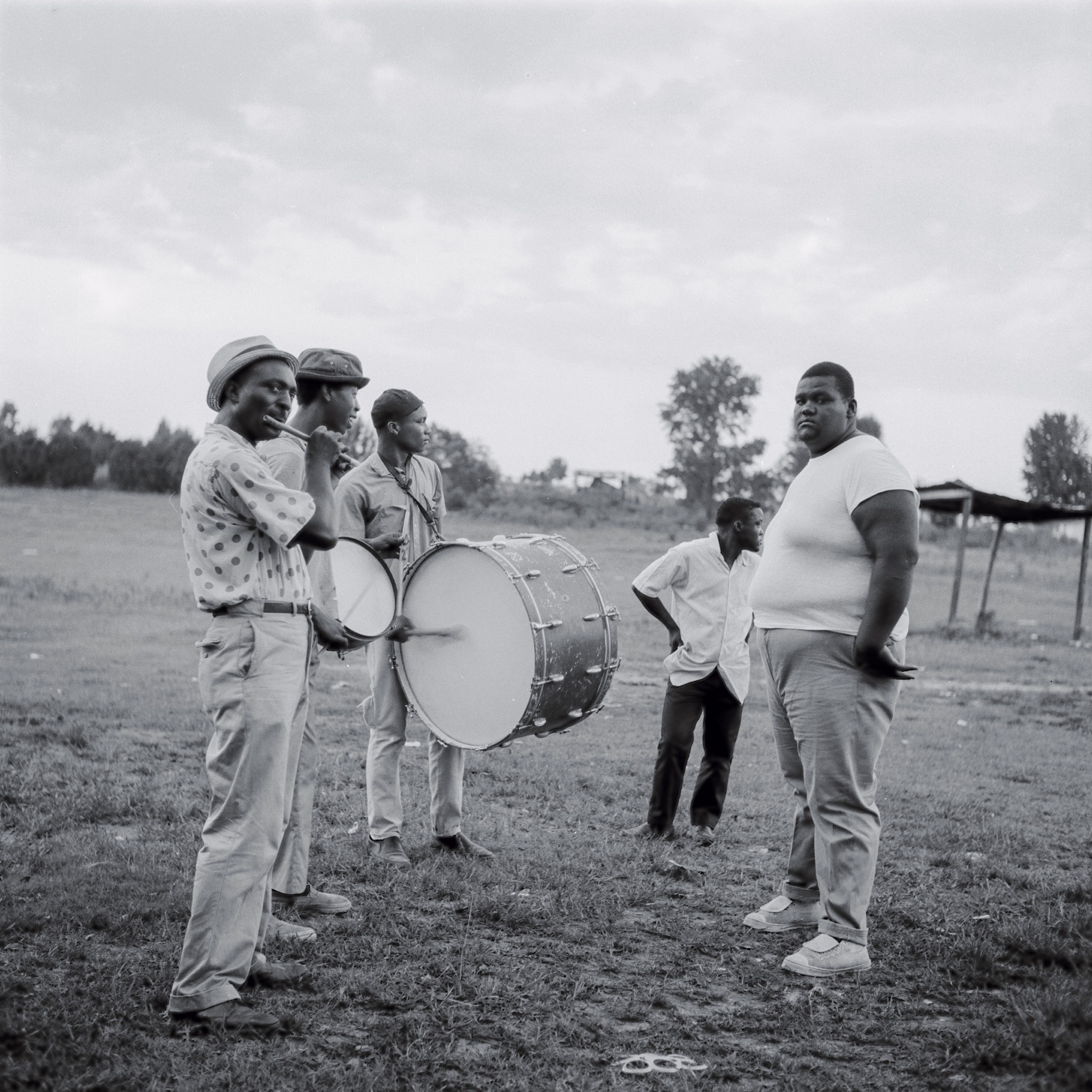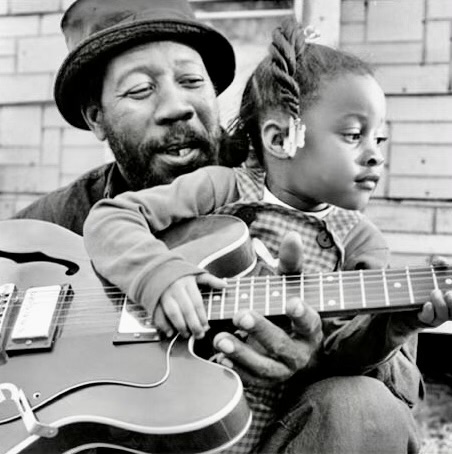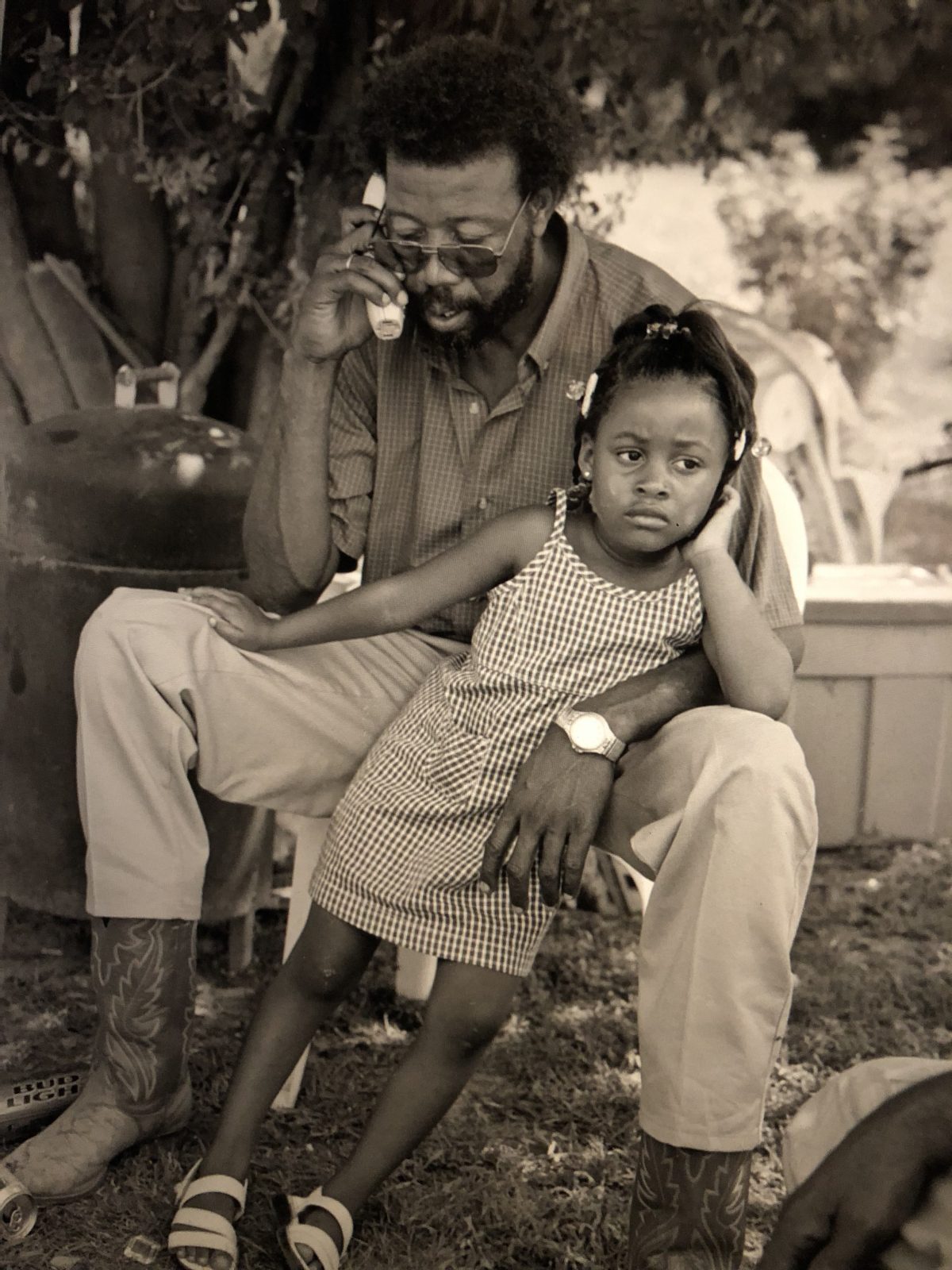When lung cancer claimed the life of drummer, guitarist, and singer/songwriter R.L. Boyce on November 9th, it left a gaping void in the heart of the North Mississippi blues. Indeed, over the course of his 68 years on earth, he emerged as one of our most powerful voices in that unique tradition, embodying its rhythms and harmonies with his very being.
When he was named a National Heritage Fellow by the National Endowment for the Arts (NEA) earlier this year, it only confirmed what many in the Mid-South already knew: that he was an integral player in the North Mississippi scene, having had a hand in some of its most distinctive music since at least the 1970s.
That was made clear soon after he passed away, when Dr. David Evans, who headed up the University of Memphis’ ethnomusicology program for many years, posted an image of a 15-year-old Boyce on social media.

Evans wrote that this image “might be the very first photo taken of him, at least in a musical setting,” adding that the occasion was a Labor Day weekend picnic at L. P. Buford’s place east of Senatobia, MS, on Sept. 4, 1970. “R. L., then aged 15, plays the snare drum,” wrote Evans, “with an unidentified bass drum player and Napoleon Strickland playing fife.”
His penchant for drums put him at the center of the vivid musical culture of North Mississippi for the decades that followed, as he played drum set for Jesse Mae Hemphill in the 1980s and ’90s, then bass drum and snare with fife master Othar Turner (whose wife Ada was R.L.’s relative).
He continued as part of the Turner drum corps for years, but also took to the guitar as this century dawned, and in recent years he was known primarily for his self-accompanied singing, releasing the albums Ain’t the Man’s Alright (Sutro Park, 2013), Roll and Tumble (Waxploitation Records, 2017), Rattlesnake Boogie (Waxploitation, 2018), and Ain’t Gonna Play Too Long (Waxploitation, 2018) under his own name, as well as being included on this year’s compilation Tell Everybody! on Easy Eye Sound.
Shanquisa Birge Boyce, Boyce’s daughter, remembers his guitar playing as an integral part of her life. “He had jobs as I was growing up, but music’s always been his passion,” she says. “Then, as he started getting older and stopped working, he went full time with his music.”
The music was something Boyce lived and breathed, according to Shanquisa. Even as he was nominated for Grammy Awards, Blues Music Awards, or named a National Heritage Fellow, it was the music that mattered most to him. “He was really excited [by such recognition] but the only thing he really wanted to do was play blues guitar,” she recalls. “If he didn’t make enough money, or would get down or sad or something, he’d pick up his guitar to bring up his spirits.”

That took the form of many jam sessions in and around his home in Como, Mississippi. “There was always music in the yard,” says Shanquisa. “He’d start up in the yard and play day and night.”
Such festivities created many beloved memories for Boyce’s family over the years, even as his playing remains indelibly etched into the minds of the fans who witnessed his shows. This weekend his family will pay their respects — joined by the Como community and many the music lovers whose hearts he touched. Many around the world will pull out their R.L. Boyce albums to revisit his finely-wrought, rhythmic blues, and, as Shanquisa notes, that’s just what Boyce would have wanted. “I think he would like to be remembered as a Mississippi Blues Man.”
R.L. Boyce funeral service schedule details
Friday, November 17th
Visitation, 2 p.m. – 5 p.m.
Felix Cauthen Funeral Home
13653 MS-HWY 4
Senatobia, MS, 38668
662 562 8667
Saturday, November 18th
Visitation, 1 p.m. – 2:15 p.m.
Celebration of Life, 2:30 p.m.
Hunter Chapel MB Church
1654 Hunter Chapel Road
Como MS, 38619
Donations for flowers and other expenses can be made to Boyce’s GoFundMe page.


